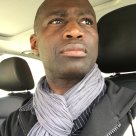With calls for police reform and demands for more accountability since the death of George Floyd in the United States and the violent videos of police attacks on Indigenous people in Canada, the Kahnawake Mohawk Peacekeepers are trying even harder to set the right example by the way they conduct policing.

Members of the force say they’re like any other professional police service in Canada — if you break the law they’ll arrest. However, they are quick to point out a key difference between them and most law enforcement agencies.
“We police where we live and we’re entirely Aboriginal,” said Corporal John Dee Delormier.
He explained that at more than 40 years old, the Kahnawake Mohawk Peacekeepers is one of the oldest First Nations police services in the country, with officers receiving the same training as any other Canadian police service.
According to Delormier, policing your own community is rewarding, but not always easy.
“It’s probably one of the hardest things — to hold on to your culture and hold on to your people, but also be the watchdog for your people at the same time,” he told Global News.
Delormier explained that understanding the societal conditions and history that can lead to someone breaking the law helps build empathy. That and knowing the people he and his colleagues arrest, he added, who may include family members, means they tend to use less force and spend more time de-escalating a situation.
- ‘Shock and disbelief’ after Manitoba school trustee’s Indigenous comments
- Canadian man dies during Texas Ironman event. His widow wants answers as to why
- Several baby products have been recalled by Health Canada. Here’s the list
- ‘Sciatica was gone’: hospital performs robot-assisted spinal surgery in Canadian first
Former Peacekeeper and current member of the Mohawk Council of Kahnawake Gina Deer agreed.
“I used to tell people ‘I have eight hours to talk,'” she smiled. “‘My shift is eight hours — we can stay here, if you’d like.’ And people think about that, you know?”
Deer pointed out that sometimes they don’t even charge an individual for minor infractions resulting from a dispute, if the involved parties choose to use an alternative dispute resolution process to settle differences.
“Because sometimes that’s all you need,” Deer noted, “is to be heard and to understand the other person’s perspective of things.”

Members of the service and the community said they couldn’t remember if the Peacekeepers have ever fired a gun on duty.
“It’s not their approach,” insisted local social worker Louis Jacco. “Their approach is trying to be collaborative, trying to settle down the situation so it doesn’t have to turn into violence.”
Even when shots are being fired, she said, like last December when an armed person experiencing a mental health crisis began shooting randomly.
“You know, the Peacekeepers chose not to shoot back because everyone was secured,” Deer remembered.
She said, in the end, the person died by suicide, but nobody else was injured.
Delormier insisted that all police officers in other forces should treat their patrol area, even in the city, as a small community, and learn about the residents. That’s what he likes about where he works.
“It’s the ultimate accountability,” he said, “to police where you live.”


Comments